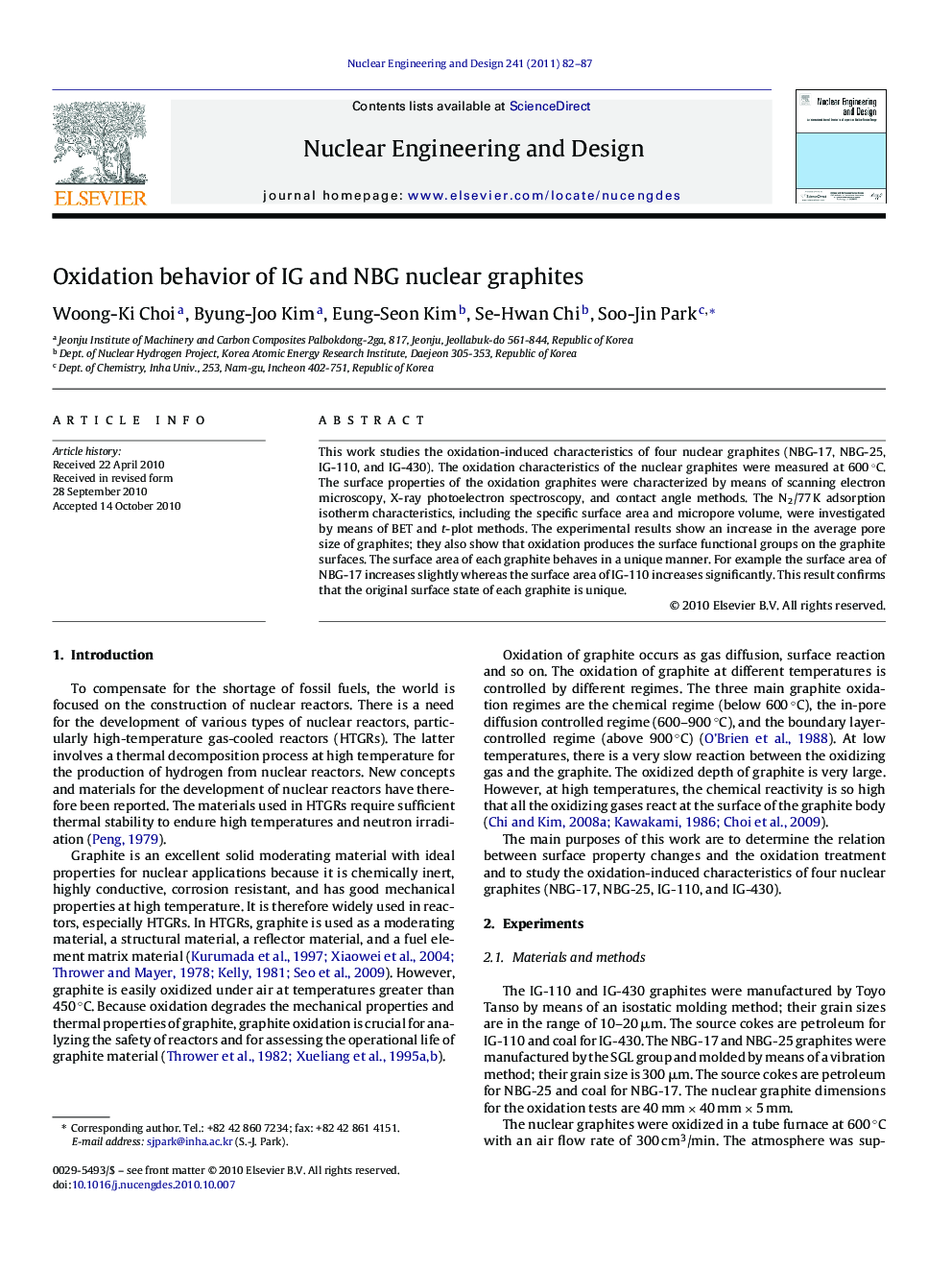| کد مقاله | کد نشریه | سال انتشار | مقاله انگلیسی | نسخه تمام متن |
|---|---|---|---|---|
| 297652 | 511763 | 2011 | 6 صفحه PDF | دانلود رایگان |

This work studies the oxidation-induced characteristics of four nuclear graphites (NBG-17, NBG-25, IG-110, and IG-430). The oxidation characteristics of the nuclear graphites were measured at 600 °C. The surface properties of the oxidation graphites were characterized by means of scanning electron microscopy, X-ray photoelectron spectroscopy, and contact angle methods. The N2/77 K adsorption isotherm characteristics, including the specific surface area and micropore volume, were investigated by means of BET and t-plot methods. The experimental results show an increase in the average pore size of graphites; they also show that oxidation produces the surface functional groups on the graphite surfaces. The surface area of each graphite behaves in a unique manner. For example the surface area of NBG-17 increases slightly whereas the surface area of IG-110 increases significantly. This result confirms that the original surface state of each graphite is unique.
Water contact angles on nuclear graphite before and after oxidation treatments: the pictures show the contact angles obtained under deionized water on oxidation-treated and untreated nuclear graphite. The water contact angles are decreased after oxidation due to the increase in the hydrophilic.Figure optionsDownload as PowerPoint slideResearch highlights▶ The average pore size of graphites shows an increase after the oxidation treatments. ▶ They also show that oxidation produces the surface functional groups on the graphite surfaces. ▶ The surface area of each graphite behaves in a unique manner.
Journal: Nuclear Engineering and Design - Volume 241, Issue 1, January 2011, Pages 82–87